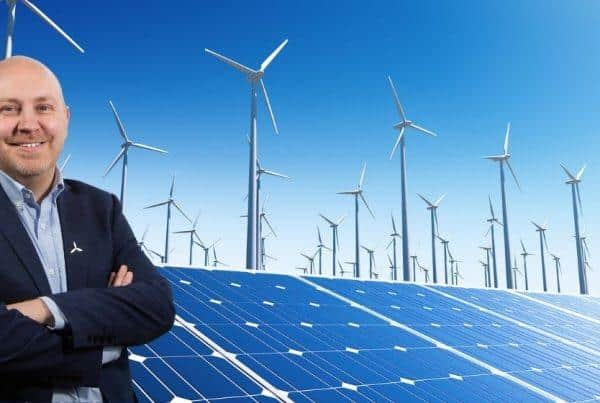Offshore wind to generate £2.4bn for the Northern Ireland economy, create 1,500 jobs and reduce emissions
and live on Freeview channel 276
Attendees at a RenewableNI offshore wind seminar learnt that the industry has the power to generate £2.4bn for the Northern Ireland economy, create 1,500 jobs and reduce emissions.
A capacity audience at the latest RenewableNI energy seminar, including government officials, supply chain representatives and developers, heard NI could ‘steal a march in electricity generation’ if the Assembly returned in the next weeks.
Advertisement
Hide AdAdvertisement
Hide AdKoichi Samuels, offshore lead in the Department for the Economy (DfE) set out the key details of the Offshore Renewable Energy Action Plan (OREAP).
He was followed by Mark Stockdale, partner at law firm A&L Goodbody and Sam McCloskey, country director at renewable energy firm Simply Blue Group, who outlined the challenges the industry face if they are to achieve 1GW of offshore by 2030. They highlighted how ‘leasing of the seabed from The Crown Estate, planning and permits, grid capacity and legislation and regulation are currently taking too long to resolve and only urgent action by elected ministers can unblock the currently stalled processes’.
The offshore renewable sector could contribute at least 1GW of electricity, representing up to a third of NI’s requirements. However, this is at risk without major changes to policy.
Director of RenewableNI, Steven Agnew, said: “NI had been ahead of the curve in 2013 when offshore projects had secured marine licences which had to then be forsaken due to a lack of market support which is still not in place. In GB there is a Contracts for Difference (CfD) scheme while Ireland has a similar Renewable Electricity Support Scheme (RESS).
Advertisement
Hide AdAdvertisement
Hide Ad“The offshore industry effectively stalled at this stage. But now we face a new opportunity to position NI at the leading edge of floating wind turbine generated electricity. It would be profoundly sad to watch this opportunity evaporate for the same reasons.”
Launched last year, the popular seminar series is aimed at engaging, educating and stimulating debate in the renewable electricity industry.
The sessions cover renewable energy themes that are especially relevant after the publication of the NI Energy Strategy and Climate Action Bill. Sponsored by A&L Goodbody, the seminars are free to attend, and feature expert speakers from government and the renewable electricity experts.
Mark Stockdale told the conference that while he welcomed steps taken by DfE who launched OREAP in late December and which is out for consultation, the sense of urgency could be sharper.
Advertisement
Hide AdAdvertisement
Hide AdHe explained: “There are many components in offshore wind projects which must be in place before the first turbine can be installed and connected to the grid. The current process for connecting offshore wind farms is outdated and lends uncertainty. Developers cannot accept a connection offer until they have a lease with The Crown Estate and environmental assessments which take two years to complete will be dependent on the cabling route from seabed to onshore substation being confirmed. Uncertainty is not for investability.”


Mark also outlined the divergence between GB and Irish support schemes warning that Ireland has already undertaken a ‘huge amount of work to prepare offshore wind’ through marine planning body statements, national marine planning frameworks, strategic marine area zones and other schemes and guidelines.
Sam McCloskey, country director, Simply Blue Group, echoed Steven Agnew’s concerns: “A Crown Estate leasing round by 2025 at the latest will be essential for unlocking NI’s offshore potential. We cannot repeat the offshore leasing round in 2013 where Northern Ireland projects with leases could not secure routes to market in the absence of a support scheme. We welcome the recent statement of intent by Department for the Economy and TCE but would like to see more urgency with timings and dates as well as the structure of the promised new leasing round.”
Sam also warned that NI must move faster as there is now much competition for resources following the allocation of 25GW of offshore wind in the ScotWind leasing round, which will require yards and port facilities to expand in order to accommodate the anticipated volumes of fabrication work. She also said Invest NI had done ‘good work on supply chain development’ with the recent establishment of the Maritime and Offshore Wind network in Northern Ireland.
The OREAP consultation period closes on March 16.